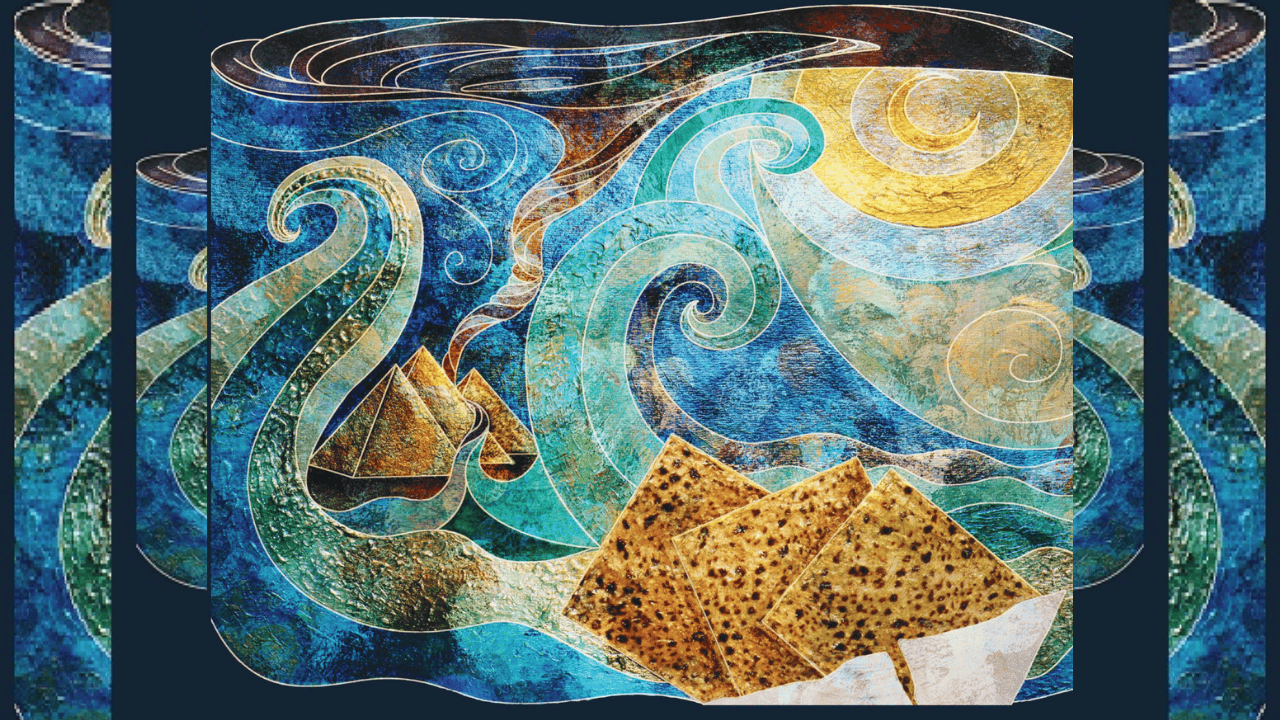The five names of the soul discussed in the previous section, according to an ancient Midrash, are: nefesh, ruach, neshamah, chayah and yechidah (Bereshit Rabbah 14:9). Each name refers to an ascending hierarchy of spiritual powers and serves as a powerful tool to critically analyze and creatively understand the human psyche. We will now explore a few relevant connections between these five levels of soul and the spiritual work of Yom Kippur.
Nefesh, the lowest level of soul, refers to what is commonly termed the animal soul, the instinctual appetites, and behaviorist drives and patterns of human action, most associated with the body. Ruach, wind or spirit, relates to the emotions; neshamah, the inner soul, is considered the seat of the intellect; chayah, “the living one,” refers to the interaction between consciousness as defined by the three previous levels and its superconscious origin; yechidah, “the single, unique one,” relates to the most Divine aspect of soul. These five levels of soul serve as a beautiful paradigm for understanding the psychological roots of various types of sins, mistakes or behavioral miscalculations. This is relevant to one’s experience on Yom Kippur for obvious reasons.
The sins motivated by the nefesh are those driven by bodily passions and desires which, in the moment, overwhelm a person’s moral sense of right and wrong, and, as a result, impair their other intellectual and emotional attributes as well. When behavior driven by the animal soul is repeated and becomes habitual, unhealthy addictions and illusions of all sort are sure to follow.
Sins motivated by the ruach are those that are fueled by unrectified personality traits rooted in an essentially ego-centric worldview including anger, hatred, jealousy, desire for power, insecurity, lack of self-worth, and so on. In negative situations motivated by the ruach, it is not the urges of the physical body that are driving the agenda, but rather a person’s unrectified ego which is leading him or her to act inappropriately in relation to others in order to control, manipulate, vent, or subdue anyone or anything that stands in their way.
The neshamah, the intellect, is implicated and plays a crucial role in all inappropriate actions undertaken by the nefesh and ruach, for it reflexively goes into high gear to generate all manner of self-righteous reasons and rationale for the sins committed. The intellect in these cases uses the most sophisticated and acrobatic systems of logic to justify sin, and even, in some cases, to convince oneself that their self-centered actions are actually meritorious.
The next two levels of “sin” are of a different nature altogether, as here we speak not of overtly negative actions, but of good deeds done in an imperfect manner, resulting in a general lack of enthusiasm, a stifling sense of mindless routine, or even at times boredom. The word chayah, the fourth level of soul, means “life force.” Based on the following verse – “You shall observe My decrees and my ordinances, that a man will do and live by them; I am God” (Leviticus 18:5) – the Ba’al Shem Tov taught that one reaches the level of “living” only through the joyful performance of mitzvot with enthusiasm and passion. If experienced otherwise, the mitzvot may appear dry and lifeless. The life-force inherent in each mitzvah is only activated when we perform it with vitality and intention. Thus, on a subtle level, all mitzvot, and indeed any other action in life, performed in a purely perfunctory manner, contain a sort of “sin”; or, stated more clearly, they miss the mark in some experiential sense, which is an act that is then in need of some level of rectification.
The next level of sin relates to the highest level of soul, the yechidah. Whereas the level of nefesh, so deeply connected to the body, is an all- pervasive presence throughout human consciousness, the yechidah operates almost entirely in the background, and remains mostly undetected. Since the yechidah is the Godly spark within the soul, and therefore forms its actual root and essence, it is considered a sin of sorts when it goes unacknowledged or unengaged. If we realized the soul’s pristine origin in Divinity and its incredible potential, purity and power, we would never sin; as all lower motivations of body, emotion and even intellect would be raised up and rectified by the overwhelming and integrative power of the Godly soul. Therefore, when we do not connect to our Divine root and true potential we allow sin to enter through the back door.
On Yom Kippur, as we go through the long list of sins committed during the past year, it is very beneficial to investigate the various drives and motivations of each of the five different levels of soul, and reflect on their influence upon our thought, speech and actions. Yom Kippur is a day of forgiveness, atonement, renewal and re-dedication to our highest self; thus, all sin can be rectified with the three-fold formula of confession and acknowledgment, regret, and a firm commitment not to sin in the future.







